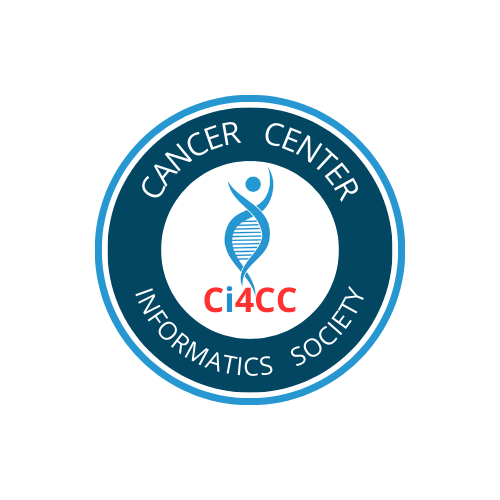NCI Cancer Data Atlas System
The Cancer Data Access System ("CDAS") is a website where you may request data recorded from various research studies. For some studies, you may also request images or biospecimens.
CDAS provides extensive public documentation for each study, including a trial summary, an overview of the data collected, and a searchable database of research projects and publications.
If you are interested in obtaining study data, you may begin a CDAS project for that study. All projects are reviewed by NCI trial leadership. Upon approval, you will be granted access to the requested data and/or materials for a limited period.
The following studies are currently available on CDAS:
NLST: National Lung Screening Trial
This trial compared two ways of detecting lung cancer: low-dose helical computed tomography (CT) and standard chest X-ray. Both chest X-rays and low-dose helical CT scans have been used to find lung cancer early, but the effects of these screening techniques on lung cancer mortality rates had not been determined. NLST enrolled approximately 54,000 current or former heavy smokers from 33 sites and coordinating centers across the United States.
You can submit requests for: Study data, CT scan and digital pathology images. Biospecimens may be requested via an EEMS biospecimens request.
PLCO: Prostate, Lung, Colorectal, and Ovarian Cancer Screening Trial
This is a large-scale, randomized study to determine whether certain screening tests will reduce the number of deaths from these cancers. PLCO is being conducted at ten sites, geographically and demographically disparate, around the U.S. The Trial enrolled approximately 155,000 male and female participants between the ages of 55 and 74 from 1993 to 2001.
You can submit requests for: Study data, chest x-ray and digital pathology images, biospecimens, and preliminary applications for biospecimen project funding.
IDATA: Interactive Diet and Activity Tracking in AARP
This study examines the measurement error properties of instruments used for dietary and physical activity assessment in cohort studies. The investigators administered four dietary assessment instruments.
You can submit requests for: Study data and biospecimens.
The CDAS development team would like to acknowledge the National Heart, Lung, and Blood Institute
and its BioLINCC Program
for the programming code used in the implementation of this website. The CDAS code was based on the BioLINCC framework, which shares many of the same advanced features and a well-defined yet flexible workflow for request submission and fulfillment.
Share this Article with others

Press Release November 2025: Oracle and Ci4CC Partner to Accelerate Oncology Innovation Strategic collaboration to leverage Ci4CC’s national network and Oracle’s technology to help advance AI in oncology, EHR interoperability, next-gen clinical trials, and personalized medicine 24th Cancer Center Informatics Society Symposium - MIAMI BEACH, Florida – November 7, 2025 – Oracle Health and Life Sciences and the Cancer Center Informatics Society (Ci4CC), a nonprofit uniting cancer centers, researchers, and industry innovators, are collaborating to advance AI innovation in oncology care and research. The collaboration aims to bring together Oracle’s technology with Ci4CC’s Initiatives Program and national network of NCI-Designated and Community Care Cancer Centers. The two organizations plan to collaborate to design an EHR optimized for cancer care. “Cancer remains a leading cause of death worldwide, but AI and data science have become powerful allies in the fight,” said Seema Verma, executive vice president and general manager, Oracle Health and Life Sciences. “Combining Ci4CC’s unparalleled expertise and network with our state-of-the-art proven AI-powered healthcare applications, we have the opportunity to accelerate discoveries that can help cure cancer.” The strategic collaboration intends to develop initiatives across oncology care and clinical research. This includes integrating clinical and genomic data for personalized medicine solutions, pioneering AI-driven approaches for clinical trial innovation and drug development, establishing robust real-world evidence frameworks, and advancing precision oncology platforms. “This alliance with Oracle marks a significant milestone for Ci4CC and our mission to further cancer informatics,” said Sorena Nadaf-Rahrov, MS, MMI, PhDc, President & CEO - Cancer Center Informatics Society. “Advancements in cancer research and clinical care are not achieved in isolation. That’s why fostering such collaborative networks is fundamental to our Initiatives Program, and central to the Society’s mission. By integrating Oracle’s cutting-edge and AI-enabled technology with real-world data from our national network of NCI-Designated and Community Cancer Centers, we hope to incubate and operationalize initiatives that will redefine cancer research and patient care. Turning data into knowledge, and knowledge into health continues to drive the Cancer Center Informatics Society forward.” Oracle NewsRoom: https://www.oracle.com/news/announcement/oracle-and-ci4cc-partner-to-accelerate-oncology-innovation-2025-11-07/ PR Newswire: https://www.prnewswire.com/news-releases/oracle-and-ci4cc-partner-to-accelerate-oncology-innovation-302608712.html
Tool aims to solve the mystery of non-coding sequences — but is still in its infancy.
Caught in the crossfire: The critical threats facing cancer centers, research, and patient care. Shannon McWeeney PhD, & Sorena Nadaf-Rahrov MS, MMI
A recent Lancet study demonstrated that AI implementation led to a 29% increase in cancer detection, with no increase in false positives and a reduced workload compared to radiologists without AI assistance. While emerging evidence supports AI’s potential to enhance cancer detection in mammography screening and reduce screen-reading workload, further research is needed to fully understand its clinical impact.
Artificial intelligence to empower diagnosis of myelodysplastic syndromes by multiparametric flow cytometry

With heavy hearts, we remember and honor Brady Davis, whose sudden passing leaves an immense void. Brady was a devoted supporter and invaluable contributor to the Cancer Center Informatics Society, dedicating countless hours to advancing our mission and strengthening our community. His expertise, enthusiasm, and unwavering commitment shaped our initiatives and inspired everyone fortunate enough to work alongside him. Brady’s legacy will live on through the progress he championed and the connections he fostered. We extend our deepest sympathies to his family, friends, and all who knew him. He will be greatly missed. In honor of Brady’s legacy, Ci4CC will be forming a committee to explore meaningful ways to memorialize him within our society for years to come. We plan to announce the committee’s recommendations at our Spring Summit in San Diego, CA, on March 31, 2025. Please find his obituary here , and visit his memorial page on MyKeeper to leave a tribute. Support the Davis family in Brady’s memory via GoFundMe ---------- Cancer Center Informatics Society (Ci4CC) Sorena Nadaf-Rahrov & Warren Kibbe Co-Founders, Ci4CC



